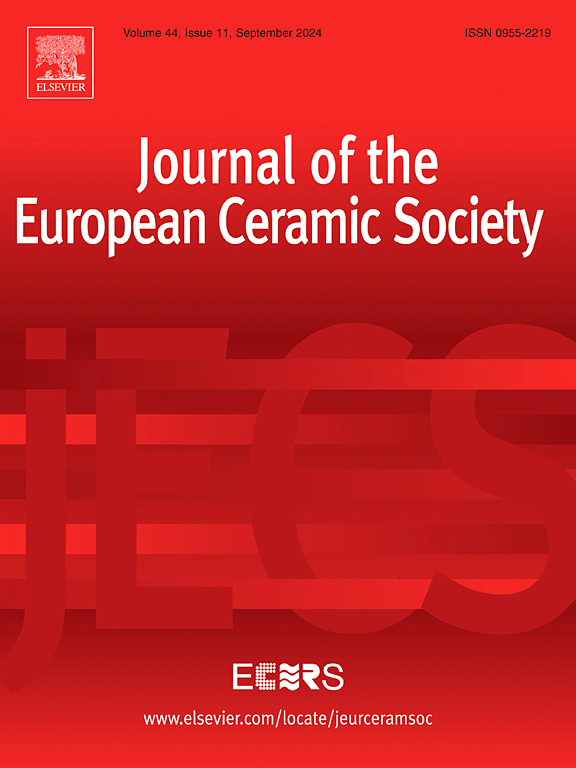使用家用微波炉烧结月球岩石模拟物:快速节能的建筑材料制造战略
IF 5.8
2区 材料科学
Q1 MATERIALS SCIENCE, CERAMICS
Journal of The European Ceramic Society
Pub Date : 2024-11-02
DOI:10.1016/j.jeurceramsoc.2024.117047
引用次数: 0
摘要
利用月球熔岩作为建造未来月球基地的建筑材料正受到越来越多的关注。烧结法不需要额外的添加剂,但仍有一些限制。本研究提出了一种快速、节能的月球碎屑岩模拟物(即马雷(CLRS-1)和高地(SC-080))烧结策略,其中家用微波炉和陶瓷纤维微波窑分别进行了 11 分钟和 14 分钟的混合加热。相应的能耗分别仅为 69 兆焦耳/千克和 98 兆焦耳/千克。模拟物中的低熔点矿物在高温下熔化,导致晶粒相互粘结。烧结样品的密度分别达到 2.34 和 2.23 克/立方厘米。这两种样品的机械性能和热性能与地球上的混凝土和砖相当,在模拟月面环境中显示出极佳的耐久性,为早期月面建设揭示了一条前景广阔的加工途径。本文章由计算机程序翻译,如有差异,请以英文原文为准。
Sintering of lunar regolith simulants using a domestic microwave: A rapid and energy-efficient strategy for construction material fabrication
Utilization of lunar regolith as building material to construct future lunar bases is receiving increasing attention. The sintering method does not need additional additives, but still has some restrictions. This study presents a rapid and energy-efficient strategy for sintering lunar regolith simulants (i.e., mare (CLRS-1) and highlands (SC-080)), where a domestic microwave and ceramic fiber microwave kiln performed hybrid heating for 11 and 14 minutes, respectively. The corresponding energy consumption is just 69 and 98 MJ/kg, respectively. The low melting point minerals in the simulants melt at high temperatures, causing the grains to bond to each other. The density of sintered samples reached 2.34 and 2.23 g/cm3, respectively. The mechanical and thermal properties of both samples are comparable to those of Earth-based concrete and brick, and show excellent durability in a simulated lunar surface environment, revealing a promising processing route for early lunar surface construction.
求助全文
通过发布文献求助,成功后即可免费获取论文全文。
去求助
来源期刊

Journal of The European Ceramic Society
工程技术-材料科学:硅酸盐
CiteScore
10.70
自引率
12.30%
发文量
863
审稿时长
35 days
期刊介绍:
The Journal of the European Ceramic Society publishes the results of original research and reviews relating to ceramic materials. Papers of either an experimental or theoretical character will be welcomed on a fully international basis. The emphasis is on novel generic science concerning the relationships between processing, microstructure and properties of polycrystalline ceramics consolidated at high temperature. Papers may relate to any of the conventional categories of ceramic: structural, functional, traditional or composite. The central objective is to sustain a high standard of research quality by means of appropriate reviewing procedures.
 求助内容:
求助内容: 应助结果提醒方式:
应助结果提醒方式:


